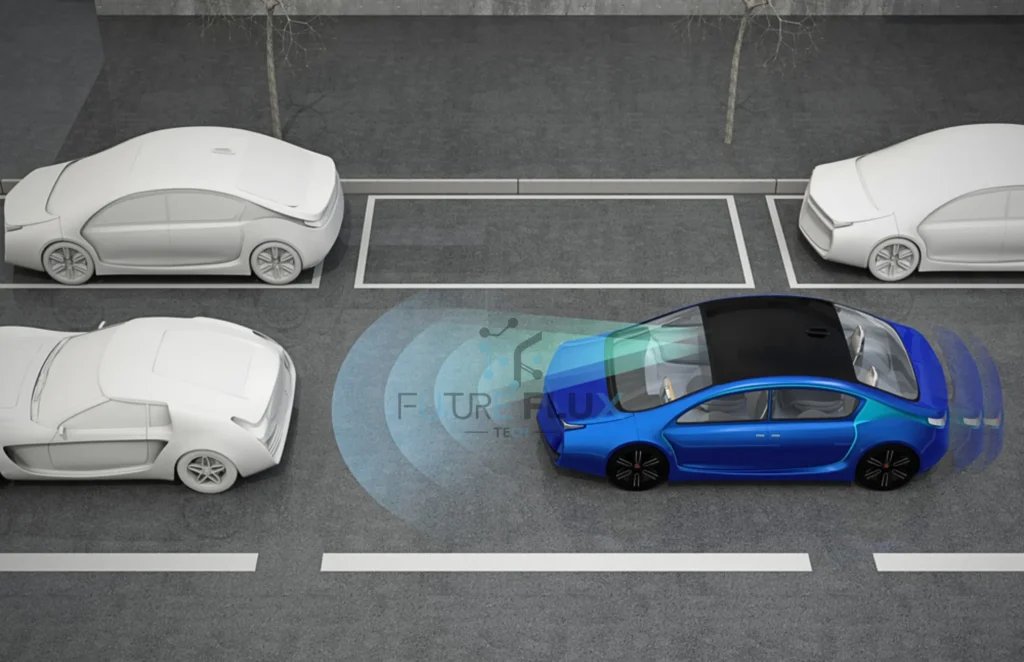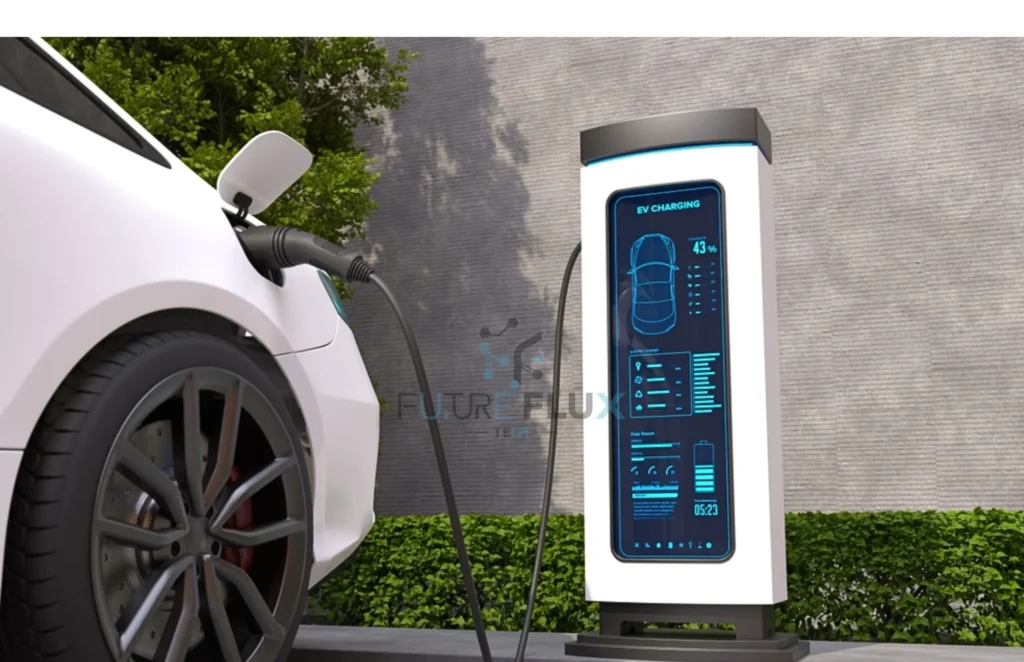Ever since the creation of the first electric car, controversies have surrounded the electric-powered vehicles. Some accuse them of false marketing while others are not very fond of their creation process. Moreover, people associated EVs with the possible risk of cancer. This begs the question, “do electric cars emit radiation?” Radiations are extremely dangerous to human health. The International Commission on Non-Ionising Radiation Protection (ICNIRP) has suggested the limits to radiation exposure. The range starts from 100 kHz to 300 GHz. In the previous articles, I covered EV battery safety and how it is generally safer to drive EVs than gas cars. However, new rumors keep popping up about EV batteries causing cancers and other diseases in humans due to high EMF exposure. Let’s uncover the truth behind such a bizarre claim.
Do Electric Cars emit radiation? EV Safety Warnings

Public concerns regarding EV safety
The internet is filled with false information regarding EVs that added fuel to the fire. The Electric vehicle cancer myths started appearing on some forums since their batteries produce electromagnetic fields. People panicked and started making bold claims that EVs can cause cancers, miscarriages, and even leukemia in children. The Electromagnetic fields EVs were indeed a concern for people using EVs and demanded an explanation from the manufacturers. However, EVs are safe after they are in use but not at the time of their processing. Their batteries contain lead which is known as a historical menace. Lead poisoning was a merciless killer in the 1800s. Most EV health risks are linked to their batteries. During production, the batteries emit toxins into the environment affecting the labors.
Debunking the myths
EV motors generate EMF when electricity flows into them. Usually, EV batteries and motors are close to the driver and passengers indicating that EMF exposure is unavoidable. Moreover, WHO suggests that people can collect symptoms due to low levels of EMF exposure even at home. The symptoms can be frequent headaches, nausea, loss of sleep, fatigue, and others. The EV battery health concerns rose when people checked their hybrids using hand-held meters and the results were unpleasant. However, the issue grabbed the attention of many experts in Norway with profound knowledge of EVs and radiation. The study was a collaboration between seven countries and funded by the EU. It responded to various popular health concerns related to Battery safety electric vehicles. Norwegian research company, Sintef was leading the research project.
The experiment and conclusion
The study involved measuring EMF levels in seven different electric vehicles. Moreover, there was also a hydrogen-powered car, two petrol-fueled cars, and one diesel-fueled car. The experiment was conducted in laboratories and on the road. Results showed that EMF levels were the highest around the batteries, near the floor, and at the time of starting the vehicle. However, the results indicated Safe exposure levels EV which was lower than 20% of the suggested values. The values were lower than 10% for ICE cars. The research also wanted to debunk whether these radiations can reach the head, chest, or feet. Dummies were placed inside the cars with sensors at the head, chest, and feet. The radiation level recorded was less than 2 percent which helped with Myth busting electric cars safety concerns. Kari Schjolberg-Henriksen, a physicist at Sintef, declared that EVs are totally safe to drive. The physicist also explained how the wheels produce EMF irrespective of vehicle type.
Can EVs have Negative Impacts on Humans?
All researches show that EVs are generally safe for human health. They improve the quality of life by reducing air pollution and promoting a greener future. However, EVs are not in the clear zone yet. Let’s discuss the problems associated with EVs and human health.
Problem no. 1
Coming back to our main concern, are Electric car safety features enough to prevent the harmful effects of EVs? The study declared zero possibility of radiation poisoning in humans related to EVs. However, that does not mean people are immune to EMF exposure. Many countries have well-established Electric vehicle safety standards to protect their citizens. Radiations are all around us and taking in more than we can handle may lead us to death sooner than we expected. The EU-funded research was a valuable asset in debunking EV safety risks, however, some people can still develop electromagnetic hypersensitivity.
Its solution
Thanks to Safe exposure levels EV, the condition is still rare and was discovered in Germany. The German Federal Office for Radiation Protection states that the condition affects only 2% of the population which is reassuring, to say the least. The German government is trying its best to impose EV battery safety limits to reduce radiation exposure. However, people with electromagnetic hypersensitivity can still experience nausea and headaches. EV companies are trying to overcome this problem by insulating the batteries with radiation-canceling materials.
Problem no. 2
Following the initial question, ‘do electric cars emit radiation?’ We can deduce that EVs do emit radiation, just not in lethal amounts. However, the second issue regarding EV radiation concerns people with heart conditions. The argument states that EV chargers emit radiation which can interfere with pacemakers or defibrillators. The chargers supply 350kWh which is high enough to cause the devices to malfunction. The German Heart Centre in Munich regarded Electromagnetic fields EVs as risky for people with cardiac devices. They found that EMF was the highest along the charging cable.
Its solution
However, a recent 2023 cardiology study indicates that electromagnetic fields have no impact on the devices. The experiment included people, aged around 59 years, out of which 21% were women. The devices were tuned to detect any interference from the chargers. The results showed no visible signs of malfunction or any damage. This concludes that EV health risks associated with EV chargers are false and do not threaten the health of heart patients.
How to make EVs Safer for Humans?

Several types of research are being conducted to make EVs safer for humans. Companies are trying to improve EV batteries and reduce their toxic effects on the environment. Here are some of the measures that can minimise EV battery health concerns in humans.
1- Insulate the batteries
Insulate the batteries with materials that do not allow any radiation to pass. Silicone is a great material for battery insulation as it prevents the batteries from overheating. What’s more? It reduces the chances of EV battery-related fire incidents. The less the conductive material the more it is resistant to Electromagnetic fields EVs.
2- Smaller battery packs
Promoting the need for smaller EVs on the road can also help reduce the impacts of radiation exposure. Batteries are the main source of generating power for the motors. Moreover, smaller batteries are less emission-intensive to make and generally safer for the environment. They will emit radiation at Safe exposure levels EV and are safe for people with electromagnetic hypersensitivity.
3- Replace battery components
Lead components of the batteries are quite unsafe for human handling. They are essential for making batteries last long, however, improper handling may have consequences. Increase Battery safety electric vehicles by finding safer alternatives to lead.
4- Increasing battery life
EV batteries generate a lot of toxins during production. Battery manufacturers must work on increasing the battery life. Moreover, most companies offer second-life batteries that can reused for a long time. Although EV batteries are not directly involved with Electromagnetic fields EVs, they can still harm the environment.
Conclusion
EVs have gained quite the fame worldwide. However, popularity brings rumors and controversies. They are accused of several things which sometimes blur the lines between myth and facts. An uproar began among the people as several internet forums posted about health issues concerning EV batteries. This led to the question, ‘do electric cars emit radiation?’ EVs emit electromagnetic fields that are lower than the standard levels. Therefore, the chances of owners developing cancer due to EVs are zero to none.
What makes EVs reliable and do they have engines? What are the best EVs for seniors? Find out more about EVs by visiting our blog.
I’m Waqas, an electric vehicle enthusiast and tech writer with over 6 years of experience covering the EV industry. I write in-depth articles, comparisons, and reviews to help readers understand the fast-evolving world of electric mobility. From battery technology to EV launches and charging trends, I aim to make complex EV topics simple, engaging, and informative for everyday drivers and curious readers alike.





